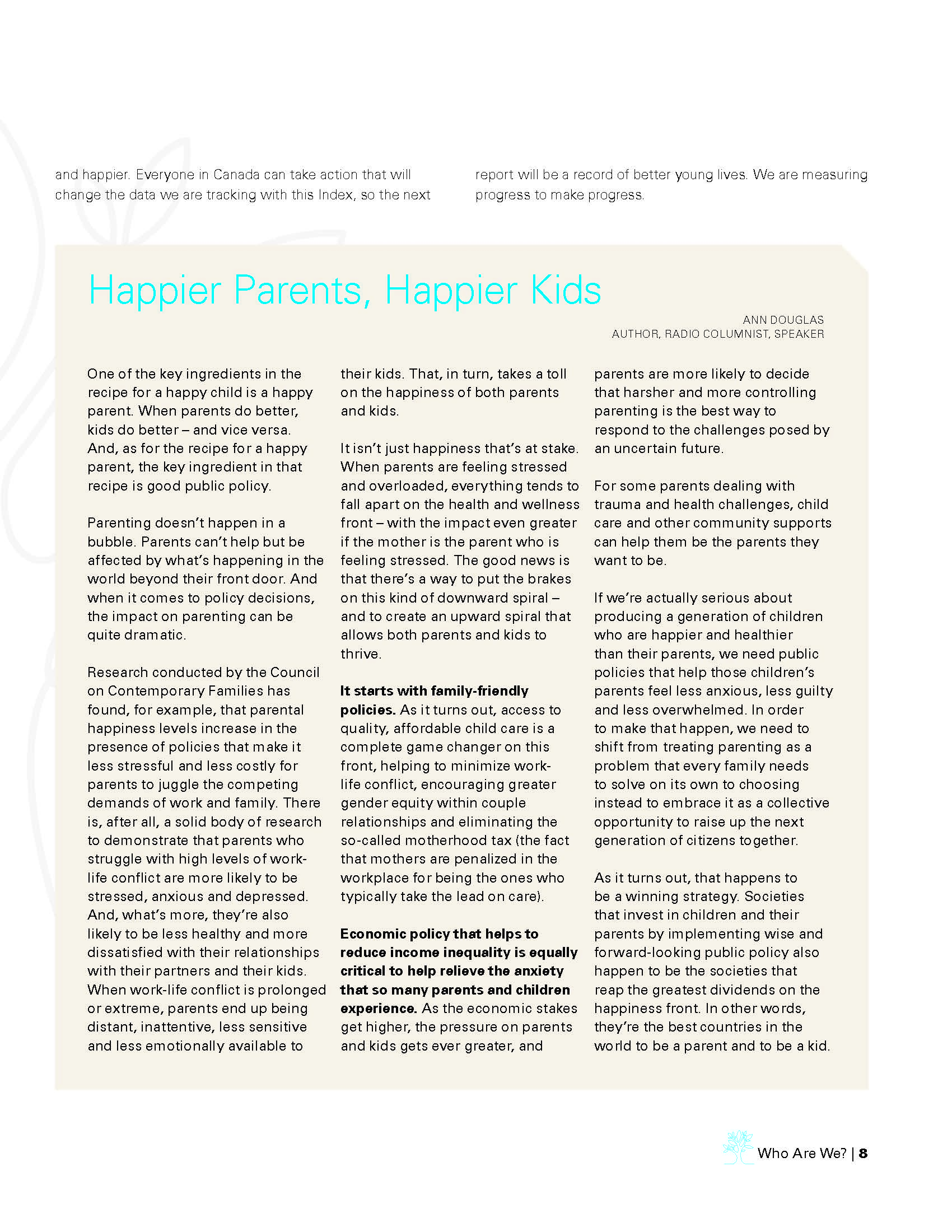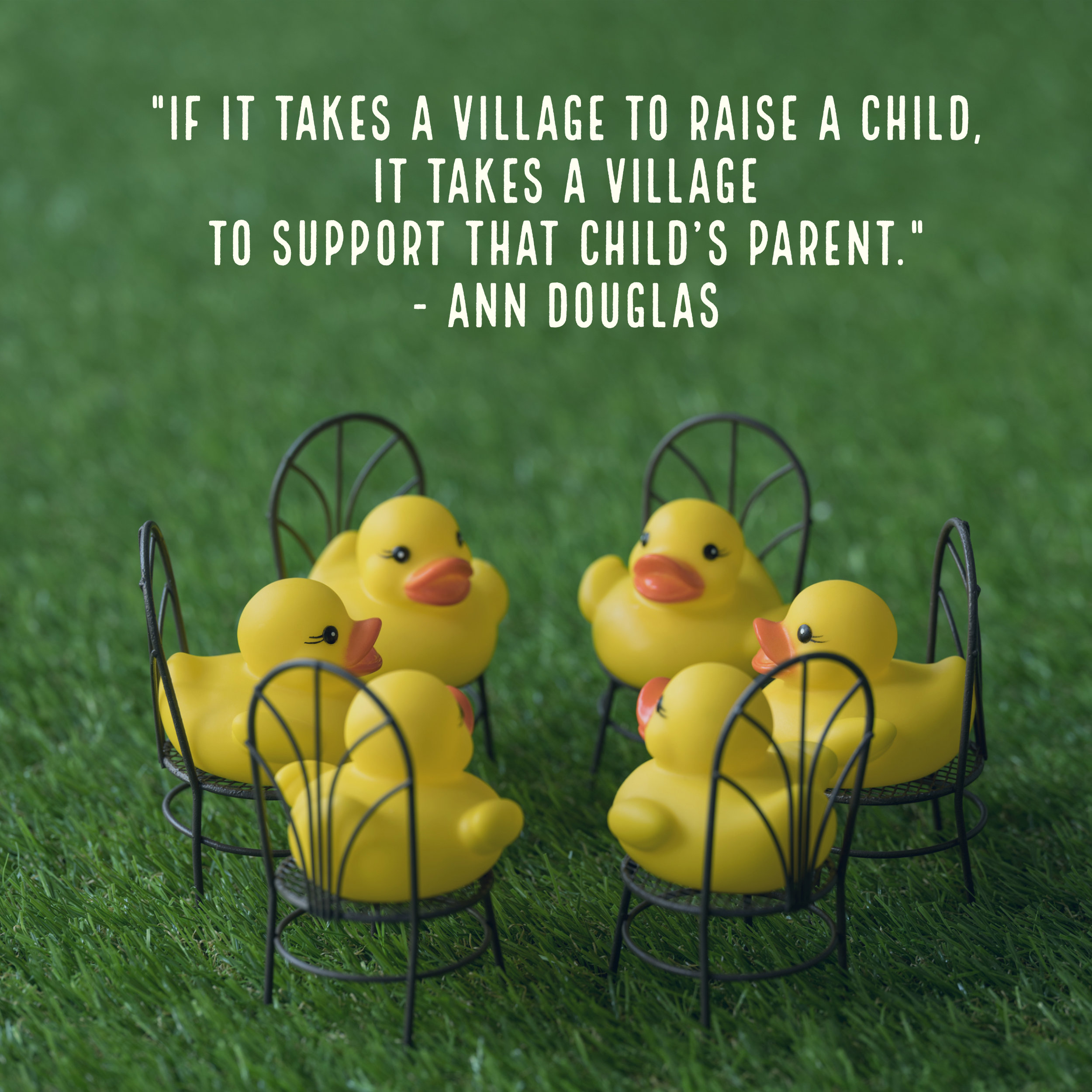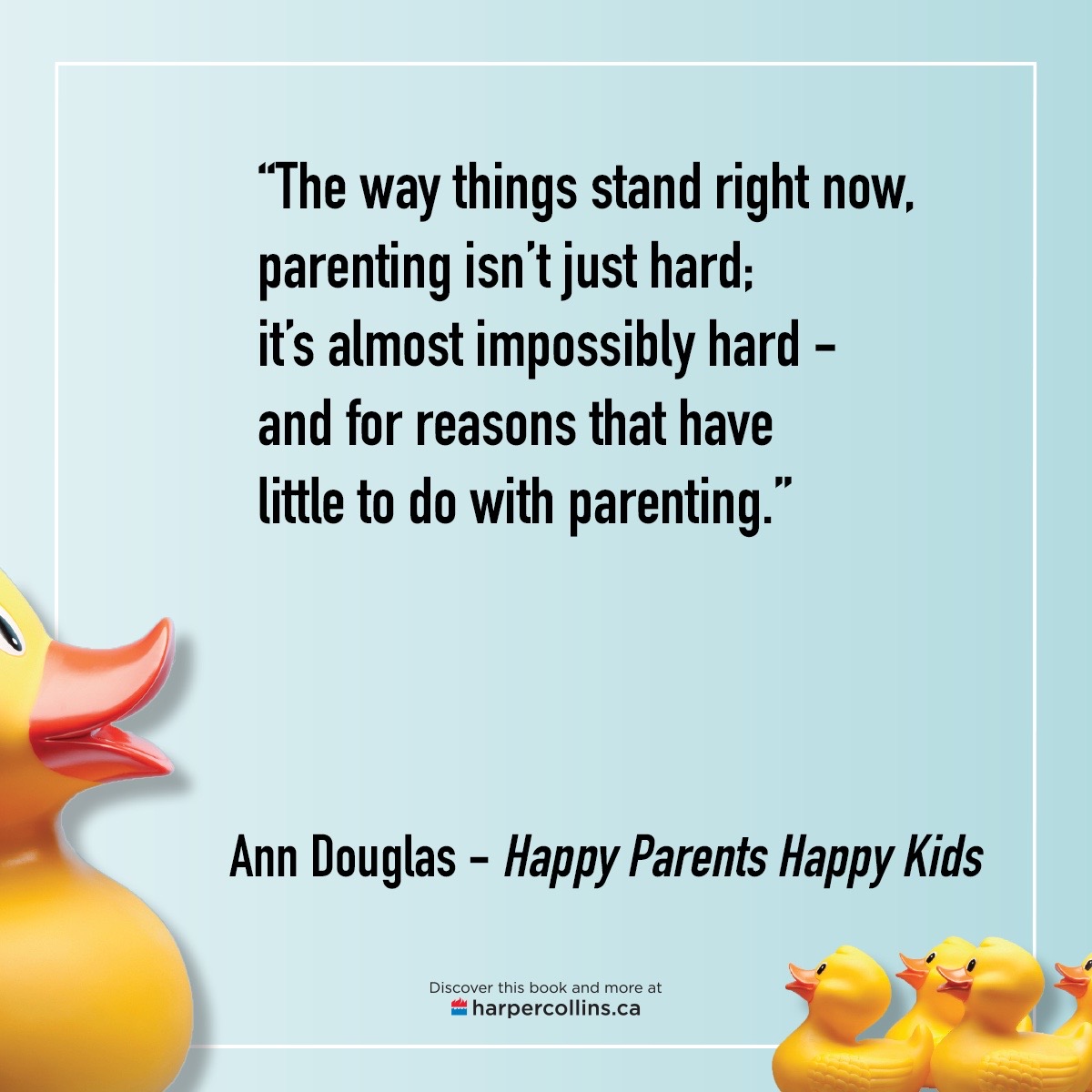What follows is a short article I contributed to a groundbreaking report on child and youth wellbeing in Canada that is being released today by UNICEF Canada and ONE Youth.
The report (which is entitled Where Does Canada Stand? The Canadian Index of Child and Youth Well-being 2019 Baseline Report) weaves together a tapestry of data to give us a comprehensive and balanced picture of how Canadian children are actually doing (as opposed to how we think they’re doing). The goal of the report (and the underlying Canadian Index of Child and Youth Well-being, which fuelled it) is to help Canadians understand what growing up is like for kids right now and what we can do to make that experience better.
The report poses some really bold and thought-provoking questions, like what kind of country does Canada want to be when it comes to the well-being of our children? As the authors of the report note in a powerful call to action: “The kids of Canada have one chance to be children. Canada has a chance to be a better country for Canada. Stand with children.”
I tweeted some highlights from the report earlier this morning and I’ll be continuing to share data from the report via social media in the coming days. The reason is simple: I would like every single Canadian who professes to care about children to pay attention to the contents of this truly visionary report.
I particularly applaud the authors’ willingness to spotlight an uncomfortable truth that we don’t talk about nearly enough: the impact of income and social inequality on the lives of Canadian children. “UNICEF Canada believes that reducing income and social inequality is the greatest challenge and opportunity of our time, with potentially the greatest effects on all aspects of children’s lives in Canada.”
We need to look at the data, search our collective souls, and commit to taking action so that each and every Canadian child has a real opportunity to thrive.
Happier Parents, Happier Kids
by Ann Douglas
One of the key ingredients in the recipe for a happy child is a happy parent. When parents do better, kids do better – and vice versa. And, as for the recipe for a happy parent, the key ingredient in that recipe is good public policy.
Parenting doesn’t happen in a bubble. Parents can’t help but be affected by what’s happening in the world beyond their front door. And when it comes to policy decisions, the impact on parenting can be quite dramatic.
“Happier Parents, Happier Kids” by Ann Douglas appears on page 8 of Where We Stand: The Canadian Index of Child and Youth Well-being 2019 Baseline Report.
Research conducted by the Council on Contemporary Families has found, for example, that parental happiness levels increase in the presence of policies that make it less stressful and less costly for parents to juggle the competing demands of work and family. There is, after all, a solid body of research to demonstrate that parents who struggle with high levels of work- life conflict are more likely to be stressed, anxious and depressed. And, what’s more, they’re also likely to be less healthy and more dissatisfied with their relationships with their partners and their kids. When work-life conflict is prolonged or extreme, parents end up being distant, inattentive, less sensitive and less emotionally available to their kids. That, in turn, takes a toll on the happiness of both parents and kids.
It isn’t just happiness that’s at stake. When parents are feeling stressed and overloaded, everything tends to fall apart on the health and wellness front – with the impact even greater if the mother is the parent who is feeling stressed. The good news is that there’s a way to put the brakes on this kind of downward spiral – and to create an upward spiral that allows both parents and kids to thrive.
It starts with family-friendly policies. As it turns out, access to quality, affordable child care is a complete game changer on this front, helping to minimize work- life conflict, encouraging greater gender equity within couple relationships and eliminating the so-called motherhood tax (the fact that mothers are penalized in the workplace for being the ones who typically take the lead on care).
Economic policy that helps to reduce income inequality is equally critical to help relieve the anxiety that so many parents and children experience. As the economic stakes get higher, the pressure on parents and kids gets ever greater, and parents are more likely to decide that harsher and more controlling parenting is the best way to respond to the challenges posed by an uncertain future.
For some parents dealing with trauma and health challenges, child care and other community supports can help them be the parents they want to be.
If we’re actually serious about producing a generation of children who are happier and healthier than their parents, we need public policies that help those children’s parents feel less anxious, less guilty and less overwhelmed. In order to make that happen, we need to shift from treating parenting as a problem that every family needs to solve on its own to choosing instead to embrace it as a collective opportunity to raise up the next generation of citizens together.
As it turns out, that happens to be a winning strategy. Societies that invest in children and their parents by implementing wise and forward-looking public policy also happen to be the societies that reap the greatest dividends on the happiness front. In other words, they’re the best countries in the world to be a parent and to be a kid.
Ann Douglas is the author of numerous books about parenting including, most recently, Happy Parents, Happy Kids. She is also the weekend parenting columnist for CBC Radio.






